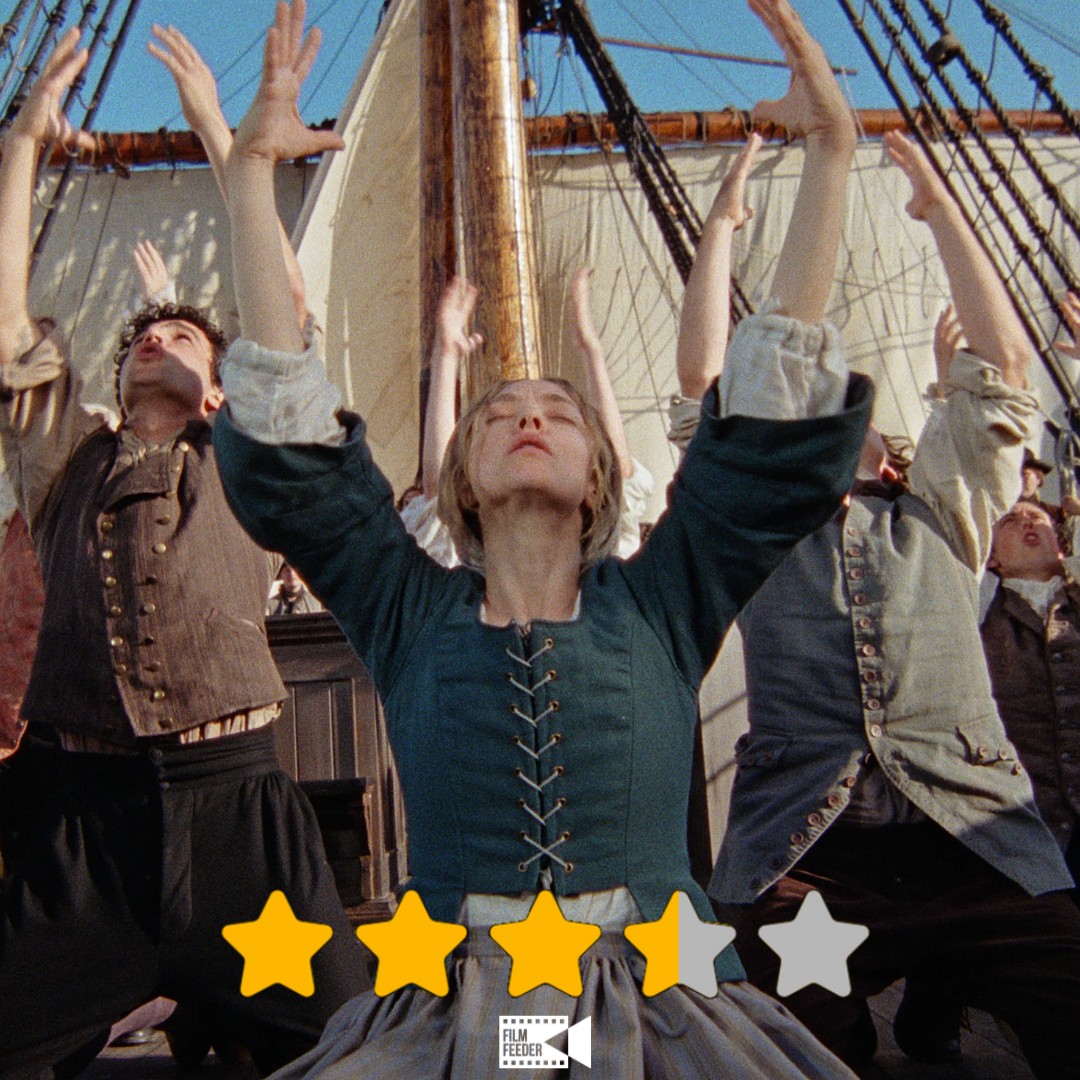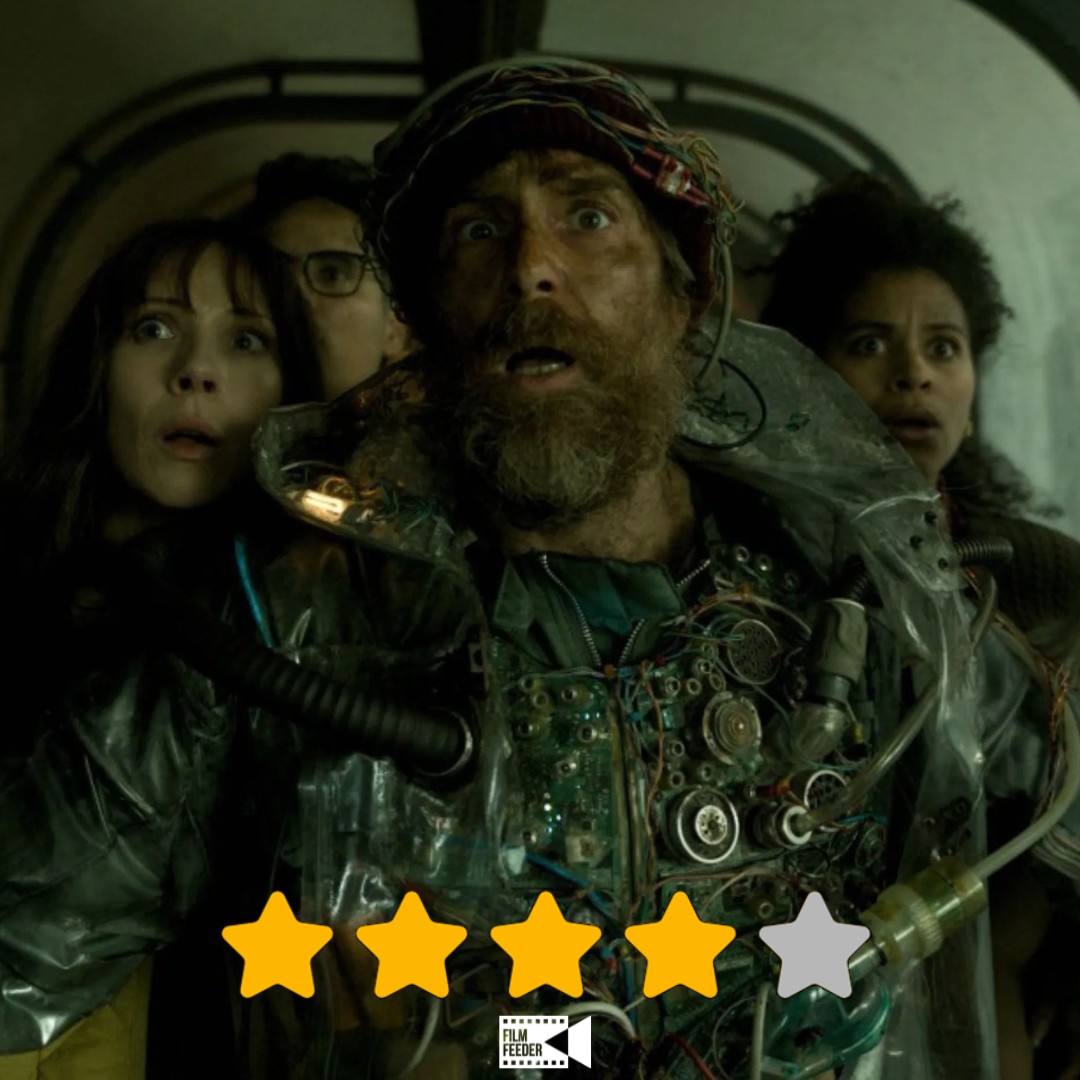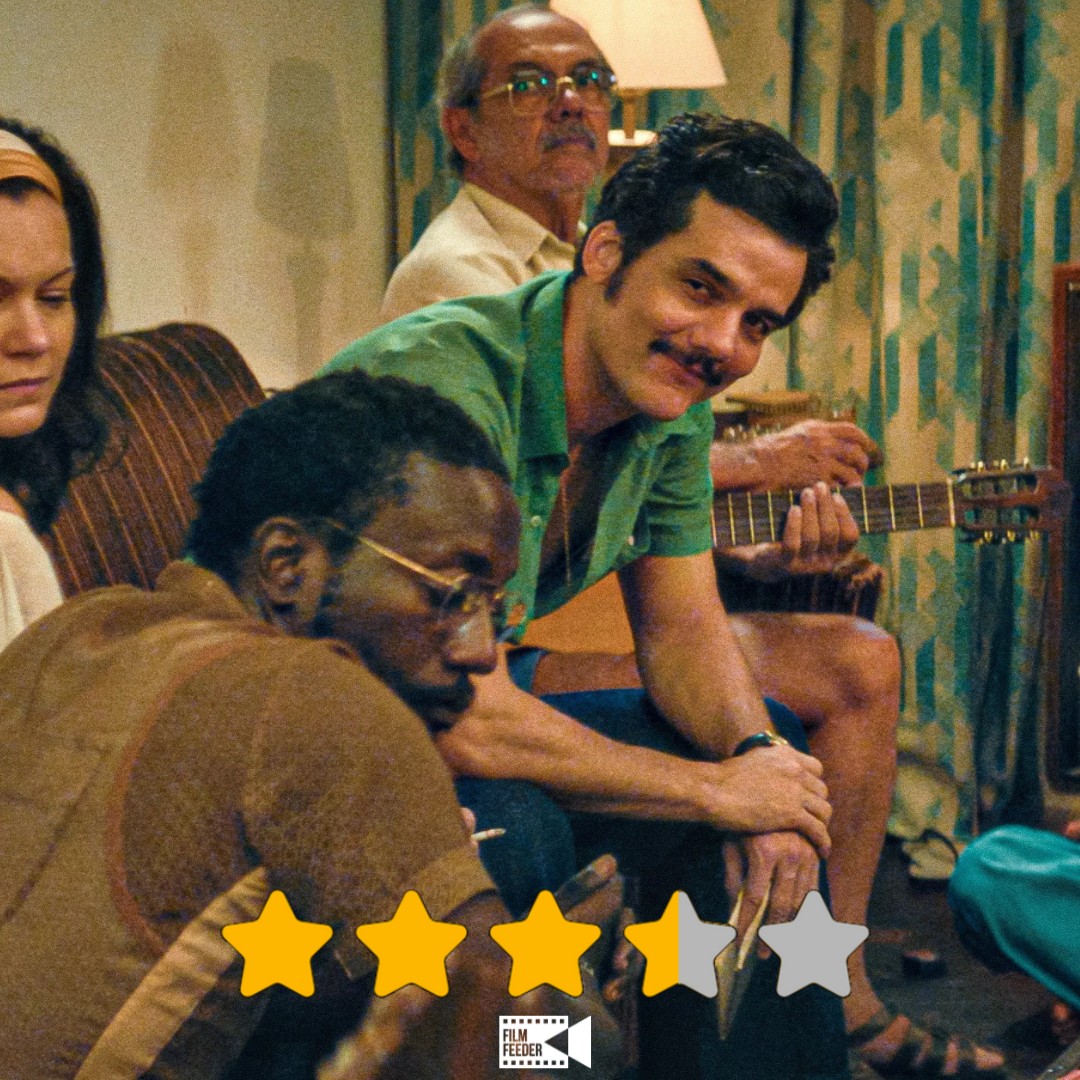
The Phoenician Scheme (dir. Wes Anderson)
Certificate: 15
Running Time: 101 mins
UK Distributor: Universal Pictures
UK Release Date: 23 May 2025
WHO’S IN THE PHOENICIAN SCHEME?
Benicio del Toro, Mia Threapleton, Michael Cera, Tom Hanks, Bryan Cranston, Riz Ahmed, Mathieu Amalric, Jeffrey Wright, Richard Ayoade, Scarlett Johansson, Benedict Cumberbatch, Rupert Friend, Hope Davis, Bill Murray, Charlotte Gainsbourg, Willem Dafoe, F. Murray Abraham, Jason Watkins, Alex Jennings, Tonio Arango, Aysha Joy Samuel, Mohamed Chahrour, Imke Büchel, Anna Bardorf, Imad Mardnli, Jaime Ferkic, Antonia Desplat, Sabine Hollweck
WHO’S BEHIND THE CAMERA?
Wes Anderson (director, writer, producer), Jeremy Dawson, John Peet and Steven Rales (producers), Alexandre Desplat (composer), Bruno Delbonnel (cinematographer), Barney Pilling (editor)
WHAT’S IT ABOUT?
A wealthy businessman (del Toro) makes ambitious plans for his legacy…
WHAT ARE MY THOUGHTS ON THE PHOENICIAN SCHEME?
With each passing project, Wes Anderson keeps finding ways to out-Wes Anderson himself, with his last two features The French Dispatch and Asteroid City in particular sacrificing traditional plot structure and contemporary human emotion in favour of increasingly meticulous craftwork and stories-within-stories delivered with deadpan expressions by endless ensembles of A-list actors. But while his latest film The Phoenician Scheme is comparatively speaking much more straightforward with its narrative, it is yet another instance of Wes Anderson being Wes Anderson in ways that you’ll either be on board with or not, depending on your taste for the auteur filmmaker.
Unlike Anderson’s most recent features, The Phoenician Scheme tells a singular story of wealthy and ruthless 20th century European businessman Zsa-zsa Korda (Benicio del Toro), whose questionable practises have put him at odds with numerous governments and fellow business folk. After surviving yet another assassination attempt – the sixth, by his count – Korda summons his only daughter Liesl (Mia Threapleton), an aspiring nun, to name her as the sole heir to his estate upon his seemingly imminent demise. Sister Liesl, resentful of her father for the belief that he had her mother killed, is reluctant to take him up on his offer, and even less so when he suddenly whisks her and newly arrived Scandinavian tutor Bjørn (Michael Cera) on a mission to renegotiate the terms of an exceptionally complex infrastructure project that is to be his lasting legacy, which is in danger of crumbling due to a funding gap.
As is expected from Anderson at this point, The Phoenician Scheme is rich with detail in every single frame, from the sharp suits that del Toro’s Korda wears with arrogant pride to the font used in several close-ups of text. Each one of Anderson’s movies is gorgeous to look at, and this is no exception, whether it’s basking in the striking retro production design of its numerous locations, or the sharpness of Bruno Delbonnel’s cinematography (filling in for Anderson’s regular DP Robert Yeoman). After a while, you start to feel yourself becoming lost in the details, wanting to explore more of this strange yet oddly inviting universe that the filmmaker has created to appease his never-ending vision.
Less wondrous, though, is the actual writing, for with Anderson also on script duties, the precise nature doesn’t come close to stopping at the interesting visuals. This is a very complicated plot, with lots of dialogue-heavy scenes explaining the ins and outs of this far-reaching scheme that Korda is trying to salvage throughout, which are delivered at such a rapid and matter-of-fact pace that it’s nearly impossible to keep up with every detail. Every so often, it’s comically simplified to where mere basketball throws are used to determine the outcome of a business dispute, but Anderson isn’t able to hold the viewer’s interest for that long since it hardly becomes apparent what the titular scheme entails or why it’s worth dedicating so much of the movie to, thanks to lengthy and frankly indulgent storytelling that is perhaps filled with too much detail.
The overly precise narrative also prevents there from being much of an emotional connection to the characters, despite some spirited turns by yet another one of Anderson’s inexplicably star-powered ensembles. While Benicio del Toro revels in a rare lead role as this initially cold-hearted baron desperately trying to preserve his fortune and legacy, the character falls victim to a common trope among most protagonists in an Anderson film, in that he’s too infused in this world to feel truly identifiable as an actual human being. Korda often feels like a conduit for Anderson’s heavy dialogue than someone the viewer can attach themselves to and thereby feel their growth as the film plods along, which the actor is more than capable enough at selling but at the cost of bringing his own eccentricity to a role that already seems too eccentric for its own good.
The same can be said about most other actors in the film as well as their respective characters, with the likes of Tom Hanks, Riz Ahmed, Scarlett Johansson and Benedict Cumberbatch all feeling similarly restricted within their director’s vision to add some of their own personality to the material. The exceptions are Mia Threapleton and Michael Cera, both of whom manage to work the system while bringing some unique quirks that make them stand out, such as the former’s amusingly deadpan delivery which makes her seem like a more devout multiversal variant of Daria, and the latter’s ever-fluctuating persona which goes from aloof and bookish to cool and charismatic in a matter of seconds. They, along with del Toro, form a unit that works surprisingly well together, coming the closest to an emotional connection within the narrative of The Phoenician Scheme, which otherwise feels too neat and precise to allow room for any other kind of feeling towards it.
Though it sounds like I’m being overly negative, I assure you that this is in no way a bad film. It’s exceptionally well-made, with striking imagery that ranks among some of Wes Anderson’s most accomplished visuals to date, and it’s not afraid to let loose every once in a while with funny sight gags that range from delightfully quirky to hilariously grim (one moment during the opening prologue had me gasping from the mere shock of it, as it’s something you’d never expect to see in one of this guy’s movies).
There’s enough to like about The Phoenician Scheme for me to recommend it, but primarily to audiences who are already well-versed in this director’s style of filmmaking, because anyone else – especially those who dislike it or, even worse, may be bored with it – will most likely not be won over in the least.
SO, TO SUM UP…
The Phoenician Scheme sees Wes Anderson deliver his most narratively straightforward movie in years with his usual meticulous style and exceptional craftsmanship, but the overly intricate storytelling gets in the way of forming an emotional attachment to many of the characters, despite some memorably quirky performances.














0 Comments